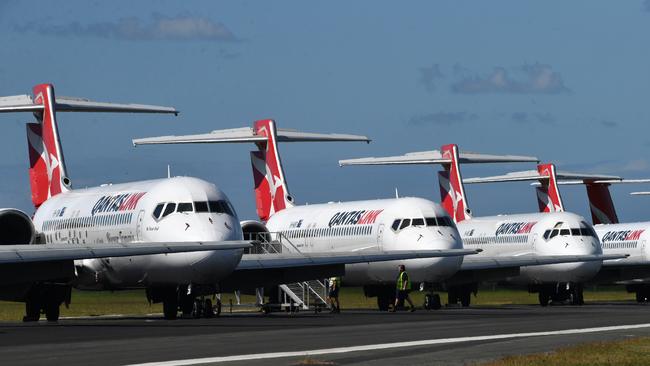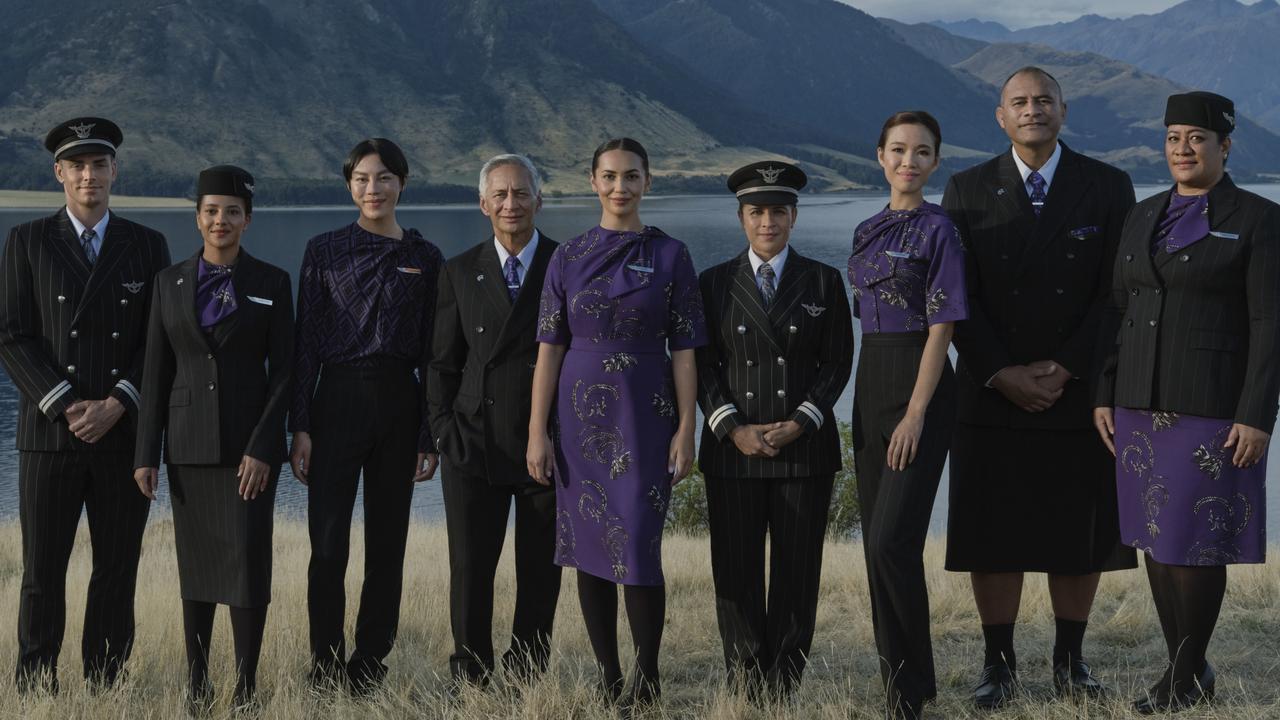Airports let fly at Qantas halting rent payments
Qantas has been accused of looking out ‘only for itself’ after it told airports it would not pay rent owed from February 1.

Qantas has been accused of looking out “only for itself” after the airline informed airports it would not pay rent owed from February 1, and would defer payment of aeronautical fees.
The airline wrote to airports, including Sydney, Canberra, Brisbane and Melbourne, letting them know of its decision not to pay rent on leased areas such as lounges and office space.
Payment of aeronautical fees accumulated in February and March would be deferred until the crisis was over, the letter said.
The move surprised airports, after Qantas CEO Alan Joyce declared the airline was in a strong financial position to see out the coronavirus crisis, and could even be the “last man standing”.
A loan of $1.05bn was recently obtained by Qantas from ten local and offshore lenders, that lifted its cash reserves to almost $4bn.
Australian Airports Association acting CEO Simon Bourke said it was “sad to hear Australia’s biggest airline was using the coronavirus crisis to look out only for itself”.
“A company that is sharing in $1bn in government support for airlines must not refuse to meet its basic obligations to others in the industry,” Mr Bourke said.
“Failure to do so puts jobs at risk across the aviation industry.”
He said aeronautical fees charged by airports had already been collected from the airline in the fares charged to passengers.
“There is no justification for any delay in paying airports for the services they have used and profited from,” Mr Bourke said.
“Airports use these funds for services like security and runway maintenance which must go ahead whether there is one flight a day or 100. The vast majority of airlines recognise that now is the time for partnership and solidarity and we are calling on anyone who doesn’t to rethink their approach.”
Brisbane Airport Corporation CEO Gert-Jan de Graaff said most of their partners realised they were all in this together, and by working together they would come through this.
“It’s very disappointing the biggest player in the industry is taking a different approach,” said Mr de Graaff.
“Airports don’t have the luxury of being able to ‘hibernate’ their businesses. We need to keep our airfields and terminals operating so that repatriation flights can bring Australians home, emergency flights can land and freight can continue to be moved.”
A Qantas spokesman said the airline would resume paying aeronautical fees and security charges from April 10.
“Everyone connected to aviation is having to bear the brunt of demand for air travel evaporating,” he said. “Most of our employees have been stood down, our executives and board directors are working for no pay and shareholder dividends have been postponed and a share buyback has been cancelled.”
He said Qantas was well-placed to weather the storm created by the coronavirus, but the company still had to manage its cash flows to make sure normal operations could resume when demand for air travel returned.
“Airlines have been hardest hit by government travel restrictions and our suppliers including airports have been very understanding [about] the acute difficulties that all airlines are facing,” he said.
Qantas was also in the process of contacting suppliers this week and informing them the airline would either be buying less of their goods and services, suspending activity temporarily or, in the case of about 100 suppliers, deferring payment terms.
Special consideration would be given for small businesses experiencing hardship, and payments would be made for goods and services already provided. In addition discussions were being held with major suppliers about rent relief, price reductions and contract negotiations.




To join the conversation, please log in. Don't have an account? Register
Join the conversation, you are commenting as Logout